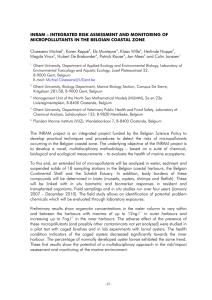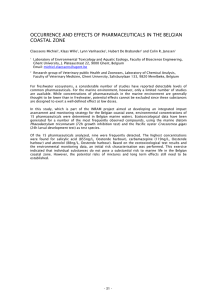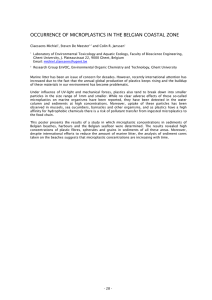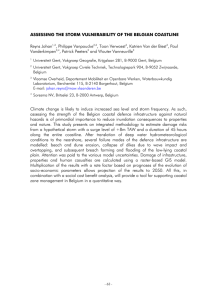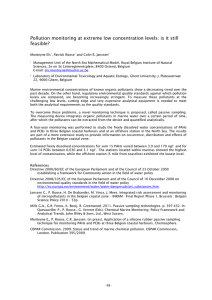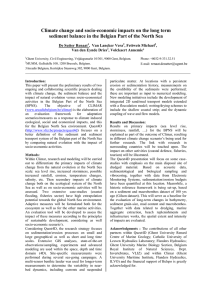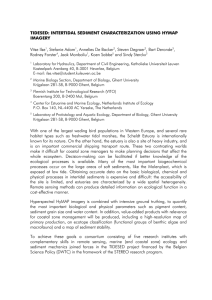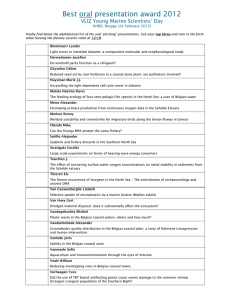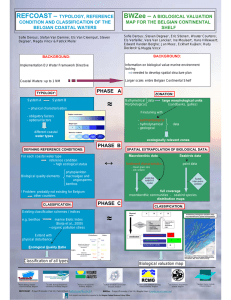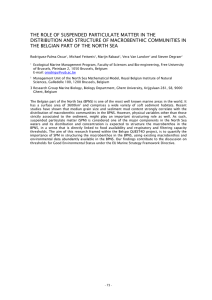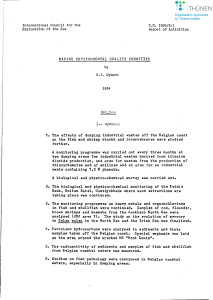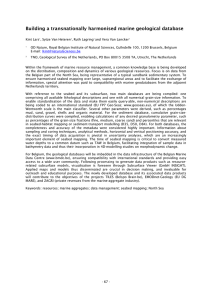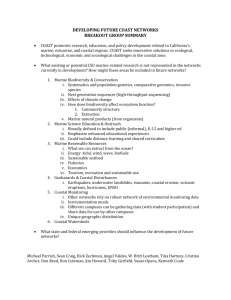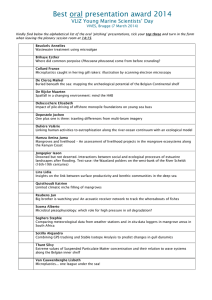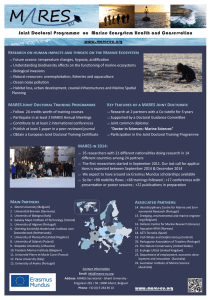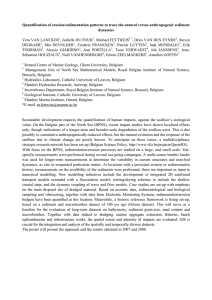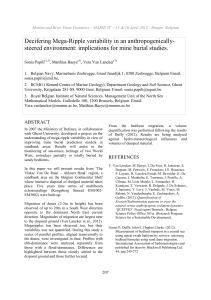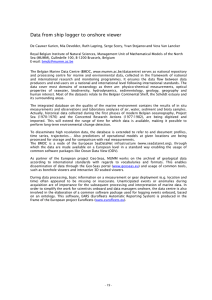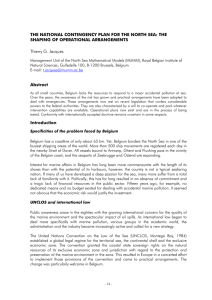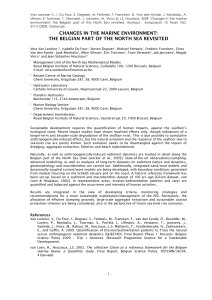INTEGRATED RISK ASSESSMENT AND MONITORING OF MICRO-
advertisement
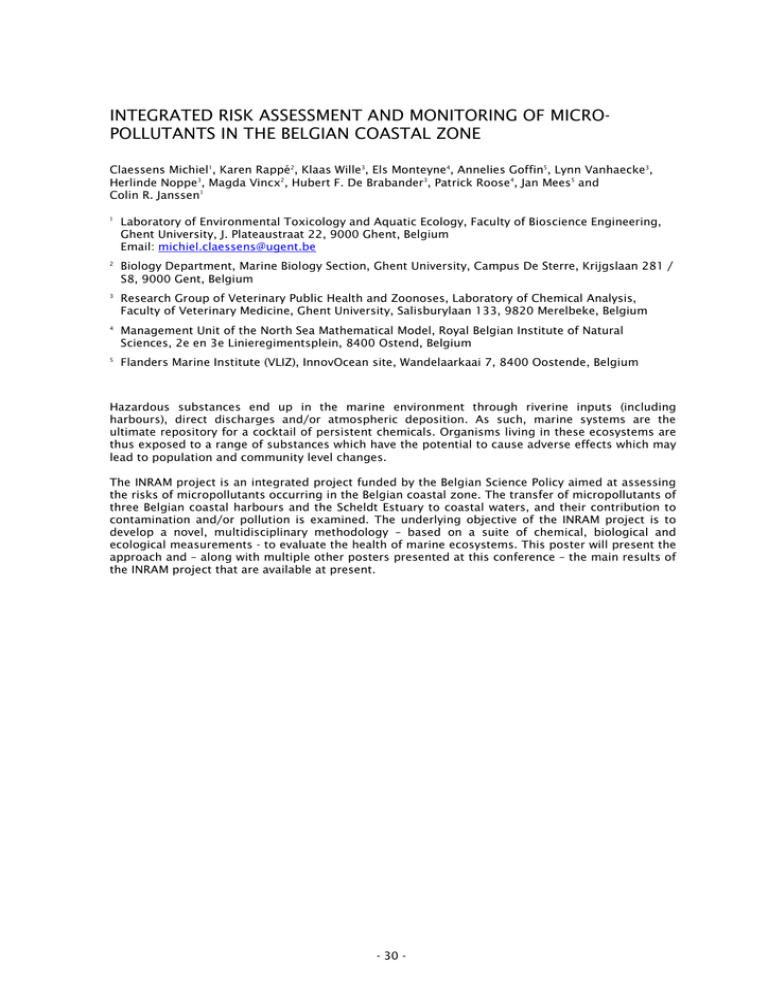
INTEGRATED RISK ASSESSMENT AND MONITORING OF MICROPOLLUTANTS IN THE BELGIAN COASTAL ZONE Claessens Michiel1, Karen Rappé2, Klaas Wille3, Els Monteyne4, Annelies Goffin5, Lynn Vanhaecke3, Herlinde Noppe3, Magda Vincx2, Hubert F. De Brabander3, Patrick Roose4, Jan Mees5 and Colin R. Janssen1 1 Laboratory of Environmental Toxicology and Aquatic Ecology, Faculty of Bioscience Engineering, Ghent University, J. Plateaustraat 22, 9000 Ghent, Belgium Email: michiel.claessens@ugent.be 2 Biology Department, Marine Biology Section, Ghent University, Campus De Sterre, Krijgslaan 281 / S8, 9000 Gent, Belgium 3 Research Group of Veterinary Public Health and Zoonoses, Laboratory of Chemical Analysis, Faculty of Veterinary Medicine, Ghent University, Salisburylaan 133, 9820 Merelbeke, Belgium 4 Management Unit of the North Sea Mathematical Model, Royal Belgian Institute of Natural Sciences, 2e en 3e Linieregimentsplein, 8400 Ostend, Belgium 5 Flanders Marine Institute (VLIZ), InnovOcean site, Wandelaarkaai 7, 8400 Oostende, Belgium Hazardous substances end up in the marine environment through riverine inputs (including harbours), direct discharges and/or atmospheric deposition. As such, marine systems are the ultimate repository for a cocktail of persistent chemicals. Organisms living in these ecosystems are thus exposed to a range of substances which have the potential to cause adverse effects which may lead to population and community level changes. The INRAM project is an integrated project funded by the Belgian Science Policy aimed at assessing the risks of micropollutants occurring in the Belgian coastal zone. The transfer of micropollutants of three Belgian coastal harbours and the Scheldt Estuary to coastal waters, and their contribution to contamination and/or pollution is examined. The underlying objective of the INRAM project is to develop a novel, multidisciplinary methodology – based on a suite of chemical, biological and ecological measurements - to evaluate the health of marine ecosystems. This poster will present the approach and – along with multiple other posters presented at this conference – the main results of the INRAM project that are available at present. - 30 -
